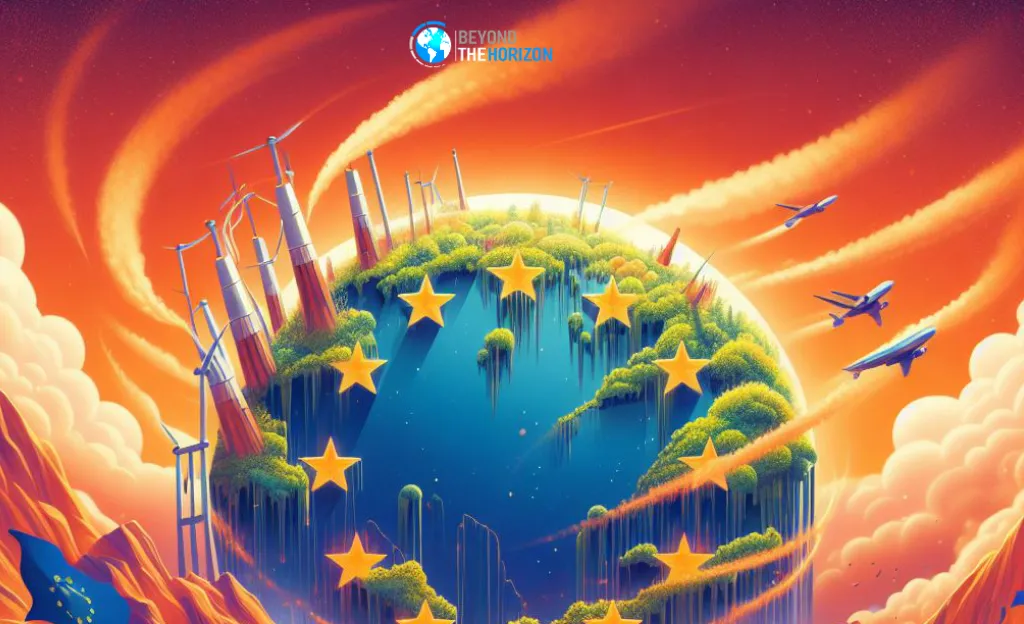“Europe is the fastest-warming continent in the world” says the new report published by European Environment Agency. A rise in average global temperature of more than 1.5 degrees Celsius between February 2023 and January 2024 is a clear indicator of future increase of frequency and severity of climate change-related environmental disasters such as extreme rainfalls, wildfires and droughts. Urgent global action is needed to combat climate change. Rising energy prices and inflation make it difficult for companies to adopt corporate sustainability practices due to weak legal regulations around the world. The Corporate Sustainability Reporting Directive (CSRD) and the Corporate Sustainability Due Diligence Directive (CS3D) encourage boards of directors of companies in countries outside the EU to take action to support the fight against climate change.
Corporate Sustainability Reporting Directive
The CSRD, which entered into force in January 2023, requires all large companies meeting certain criteria such as a balance sheet total of more than €20 million alongside all companies listed on regulated markets in the EU except for micro-enterprises to report their sustainability performance according to European Sustainability Reporting Standards (ESRS), covering their value chains. The European Union’s use of its rule-making power in international trade (the Brussels Effect) to force other companies to act more responsibly from ESG (environmental, social and governance) perspective through companies operating on its territory is strengthening efforts to limit the impacts of the deepening climate crisis by alleviating the gap left by multinational decision-making mechanisms that have been weakened especially after the Ukraine War. Many companies operating outside Europe have started to take steps to improve their ESG performance by including CSRD reporting or data requests in their risk assessments.
The sustainability standards introduced by the ESRS for large companies require more than 1000 data to be reported under the headings of environment, social and governance. While some of these data (ESRS 1, ESRS 2, ESRS E1 and ESRS S1) must be reported by all companies, reporting under other standards depends on the materiality assessment to be made by companies. Companies reporting under the CSRD and their partners in the value chain should establish their own sustainability organizations, conduct comprehensive analyses on the issues identified by ESRS and develop strategies to manage the sustainability impacts/risks/opportunities they identify.
Corporate Sustainability Due Diligence Directive (CS3D)
CS3D is one of the most important signs of the transition of corporate sustainability principles from soft law to hard law. The CS3D, which was watered down and adopted after painful votes in the Council of Europe, requires companies to identify actual and potential significant negative impacts in their value chain and take steps to address these impacts. CS3D, which envisages the imposition of heavy penalties on companies that do not show due diligence based on the evaluations to be made through the complaint mechanisms to be established, draws attention as a sanction mechanism that will increase the effectiveness of reporting under the CSRD. CS3D is expected to become law in April 2024, if a positive result comes out of a vote in the European Parliament. In the following process, EU member states are required to integrate the CS3D into their domestic laws within 18 months.
A double-edged sword
The European Union leads the way in green transformation and sustainability, at least in terms of legal regulations. However, regulations such as CSRD and CS3D, introduced under the European Green Deal, are causing companies in the EU to incur additional costs. The recent deadlock in the negotiations on CS3D in the European Council and the reactions of farmers in the EU to agricultural regulations demonstrate the discomfort with the costs that the European Green Deal regulations impose on society. Moreover, criticism that the EU has prioritized sustainability to the detriment of its competitiveness in global trade has led to a number of consequences, such as the strengthening of far-right parties.
Conclusion
The capacity of the United Nations and other multilateral organizations to tackle global problems, which has been moving slowly since the start of the Ukraine War, is moving towards net-zero. The continued increase in global emissions and the use of natural resources indicates that global warming will reach 3-4 degrees Celsius by the end of the century, as stated in IPCC reports. In this context, the continuation of steps to increase transparency and responsible production along global value chains within the framework of the European Green Deal regulations launched by the European Union in 2019 is critical to limit the devastating impacts of the climate crisis. If the EU slows down the process started with the European Green Deal in order to protect its own competitiveness, it will hinder the steps taken by companies outside the EU to become more sustainable in order to avoid the impacts of CSRD and CS3D. Therefore, instead of retreating into its own shell, it is crucial for the EU to continue to take steps to strengthen cooperation in the international arena to combat the climate crisis and to maintain its determined stance for the creation of a more sustainable ecosystem, especially by using its power in international trade, in order to overcome the bottleneck in the international system in the fight against the climate crisis.

